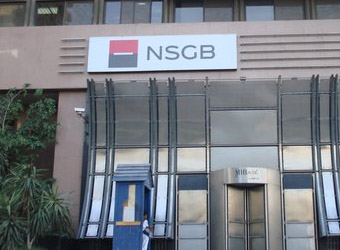Gulf banks are betting on Egypt despite anti-government protests continuing in several cities.
Hot on the heels of Qatar National Bank’s deal last week to buy Société Générale’s Egypt’s unit for $2bn, Dubai government-controlled Emirates NBD is looking to buy BNP Paribas’ Egyptian retail banking business, according to people familiar with the deal.
Egypt in transition
While most analysts agree that Egypt’s combination of large population and diversified economy means it is an appealing place to invest, few international buyers outside the oil-rich Gulf are willing to take the political risk involved.
“There is a risk but we are confident in the future of Egypt, politically and financially,” said Ramzi Mari, chief financial officer at Qatar National Bank. “This is the right time. If you miss this chance, in a year’s time everything will settle down and opportunities will be very limited.”
As western lenders downsize amid tighter capital adequacy ratios, the Middle East has been a target for scaling back. As they have done so, the region’s liquid government-backed banks such as National Bank of Abu Dhabi and Qatar National Bank are ready to snap up business.
But political unrest has shown little sign of calming in recent weeks as tension has mounted over the passage of an Islamist-backed draft constitution, prompting more street protests.
Analysts argue that state-backed QNB’s move is not purely commercial, but political too, as Qatar has been a supporter of the new Muslim Brotherhood-led government and one of the first to invest in Egypt since the revolution. QNB is 50 per cent owned by Qatar’s sovereign wealth fund and the remainder is traded on Doha’s stock market.
The gas-rich Gulf state has invested billions of dollars in Egypt over the past year. Qatar Petroleum International helped Egyptian private equity firm Citadel Capital to seal its $3.7bn petroleum refinery project in June. It later announced a liquefied natural gas project with the same Egyptian firm.
QInvest, a Qatari-state backed investment bank agreed this year to split off EFG Hermes’ banking business into a joint venture in which it would take a 60 per cent stake.
While Dubai-based Emirates NBD has not confirmed its interest in BNP Paribas’ Egyptian assets, Rick Punder, the Dubai Bank’s chief executive, has told local media that Egypt was underbanked and its large population means it has potential.
Saudi Arabia and Qatar have stepped up their financial support to Egypt, injecting hundreds of millions of dollars to shore up the central bank’s foreign reserves.
“When the Gulf states started saying at the beginning of the Egyptian revolution that they’d be financially supportive – there was a lot of skepticism. But now, the money is making its way to the system,” says Daniel Broby, chief investment officer at Silk Invest, the investment boutique in London.
The Gulf states are more comfortable with the level of risk involved and as western banks reduce their debt and are effectively split up, the days of riskier bets such as Egypt are “long gone,” Mr Broby adds.
QNB’s acquisition of the 77.17 per cent stake in National Société Générale Bank is only the latest example of wealthy Gulf banks stepping in to fill the shoes of European lenders.
Financial News



